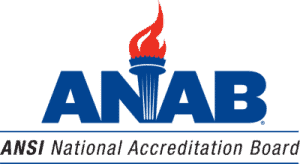What Is AR 3125?

The Accreditation Requirements for Forensic Testing and Calibration, AR 3125, supplements ISO/IEC 17025:2017 with applicable requirements from the International Laboratory Accreditation Cooperation (ILAC) policies. Additionally, it contains specific accreditation requirements important to the forensic sector, including but not limited to requirements related to impartiality, structural, personnel, facilities and environmental conditions, equipment, metrological traceability, review of requests, tenders and contracts, selection and verification of methods, validation of methods, sampling, handling of test or calibration items, technical records, evaluation of measurement uncertainty, ensuring the validity of results, reporting results, and management system requirements.
Which ILAC Policies Are Addressed in AR 3125?
ILAC policies addressed in AR 3125 include:
- ILAC P9 – ILAC Policy for Participation in Proficiency Testing Activities
- ILAC P10 – ILAC Policy on the Traceability of Measurement Results
- ILAC P14 – ILAC Policy for Uncertainty in Calibration
Additionally, AR 3125 incorporates key aspects of ILAC G19 – Modules in a Forensic Science Process, which provides guidance for Forensic Testing and Calibration Laboratories. Notes, included in AR 3125, provide clarification or examples of conformance, but do not constitute additional accreditation requirements. All requirements in AR 3125 are preceded with the word “shall”, which is defined in the Introduction of ISO/IEC 17025:2017 as the verbal form for requirement.
How Does AR 3125 Supplement ISO/IEC 17025 Requirements for Forensic Testing and Calibration Laboratories?
Forensic testing and calibration laboratories accredited by ANAB must conform to the requirements of AR 3125, so it is important to understand the additional requirements outlined in the document. For example, 4.1.3.1 requires the management system to have a code of ethics as part of the management’s commitment to good professional practice. An annual review of the code of ethics by all personnel is required, along with a record of that review. Finally, appropriate actions must be taken when necessary, such as a violation of the code of ethics. These specific requirements are in addition to the general requirements of clause 4.1 and 4.2 of the ISO/IEC 17025:2017 standard.
Another example is in 6.3.4.1, where the laboratory is required to have a procedure that addresses security and access to areas where testing and calibration occur. This goes above and beyond the requirement in ISO/IEC 17025:2017, 6.3.4.a, which requires measures to control access to and use of areas affecting laboratory activities. 6.3.4.1 provides an example of a note in AR 3125 as well. The note provides topics to consider, such as access to buildings, access by personnel, access by visitors, security during operational hours and non-operational hours, and devices that grant access.
How Does AR 3125 Address Education Requirements?
AR 3125 ends with a normative annex for education requirements for personnel. The annex provides education requirements for personnel who authorize results or express opinions and/or interpretations in specific disciplines based on the country in which the laboratory operates. Two notes indicate minimum education requirements apply to personal working in any discipline and that the table is not exhaustive with additional disciplines being added, as appropriate.
The Value of AR 3125 for Lab Personnel
It is important for management and laboratory personnel to be familiar with the additional requirements in AR 3125 so that the management system is developed, implemented and maintained in conformance to those requirements, as well as the requirements of ISO/IEC 17025:2017. All accreditation requirements are publicly available on the ANAB website based on the business unit and/or accreditation standard. For questions related to the requirements in AR 3125, reach out to ANAB at [email protected].






